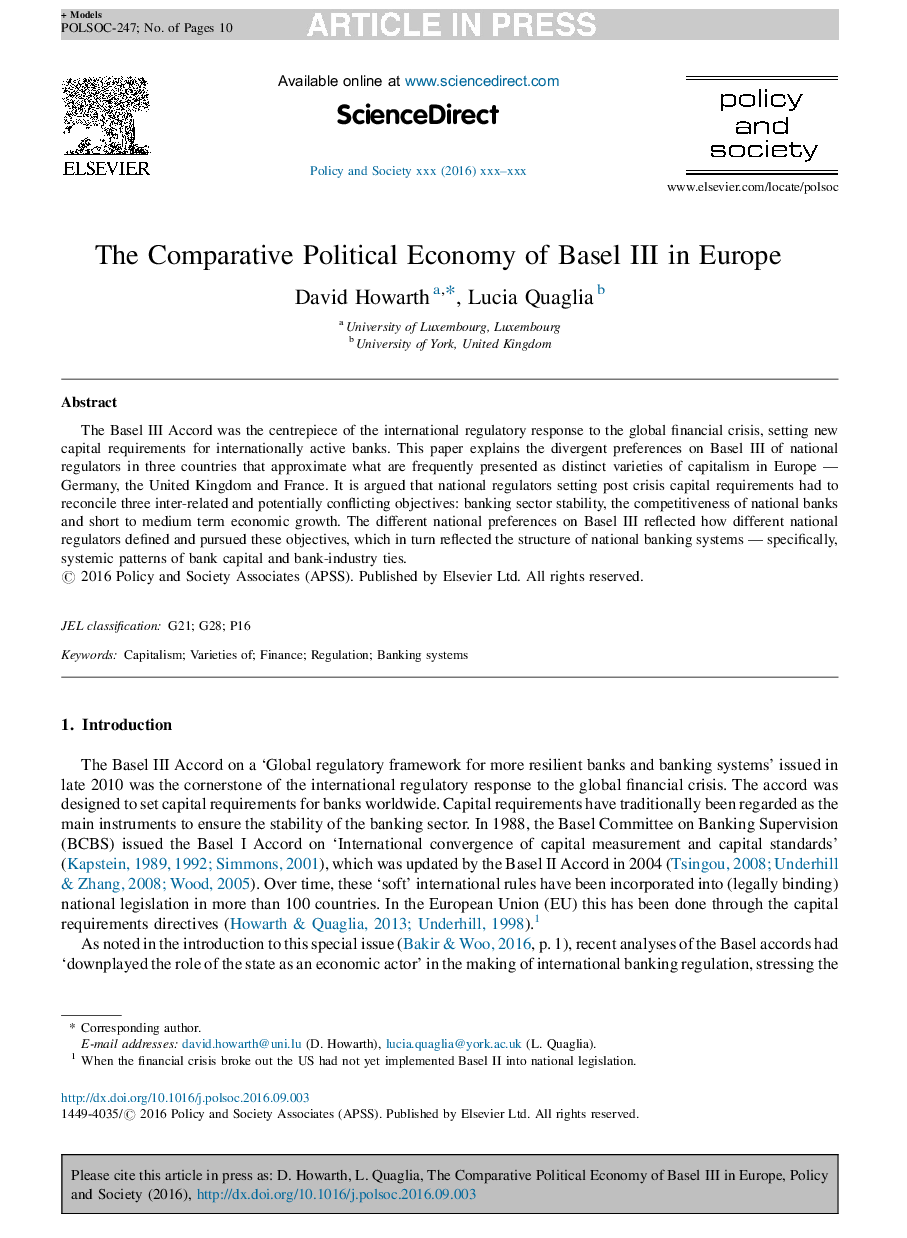| Article ID | Journal | Published Year | Pages | File Type |
|---|---|---|---|---|
| 5118385 | Policy and Society | 2016 | 10 Pages |
Abstract
The Basel III Accord was the centrepiece of the international regulatory response to the global financial crisis, setting new capital requirements for internationally active banks. This paper explains the divergent preferences on Basel III of national regulators in three countries that approximate what are frequently presented as distinct varieties of capitalism in Europe - Germany, the United Kingdom and France. It is argued that national regulators setting post crisis capital requirements had to reconcile three inter-related and potentially conflicting objectives: banking sector stability, the competitiveness of national banks and short to medium term economic growth. The different national preferences on Basel III reflected how different national regulators defined and pursued these objectives, which in turn reflected the structure of national banking systems - specifically, systemic patterns of bank capital and bank-industry ties.
Related Topics
Social Sciences and Humanities
Social Sciences
Geography, Planning and Development
Authors
David Howarth, Lucia Quaglia,
